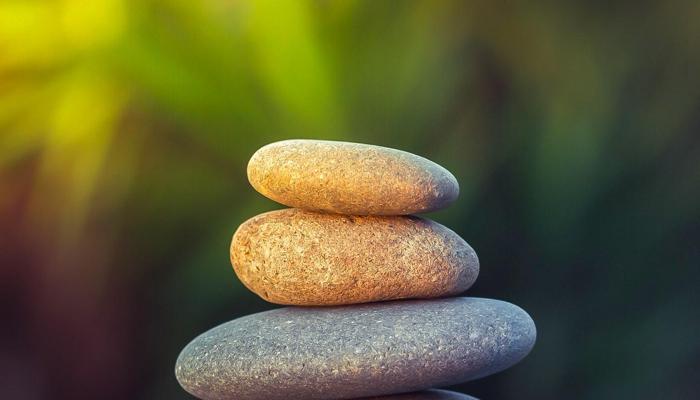Unlock the secrets to a balanced life with 8 tips for a holistic lifestyle in fast-paced India. Dive in for wellness wisdom!
In today's fast-paced India, chasing dreams and meeting deadlines often leaves
us feeling drained. We juggle work, family, and social commitments, and somewhere along the line, our well-being takes a backseat.

But there's a growing awareness of the importance of a holistic lifestyle – a way of living that integrates physical, mental, and emotional health to create a sense of wholeness and balance. It's about nourishing your mind, body, and spirit to live a more fulfilling and meaningful life.
Forget quick fixes and fad diets; a holistic approach is about making sustainable changes that promote long-term well-being. Here are eight essential tips to help you cultivate a balanced and holistic lifestyle, tailored for the Indian context.
Mindful Movement: Not Just Exercise, But Joyful Activity:
We Indians often think of exercise as a separate chore, something we dread doing. Shift your perspective! Instead of hitting the gym with a grimace, find activities you genuinely enjoy. Think of the things you loved doing as a child – cycling, dancing, playing badminton with your friends.

Incorporate movement into your daily routine, whether it's a brisk walk during your lunch break, taking the stairs instead of the elevator, or simply stretching while watching TV.
Yoga, with its ancient roots in India, is a fantastic option.
It combines physical postures, breathing exercises, and meditation, promoting flexibility, strength, and mental clarity. Even a short 15-minute yoga session in the morning can make a significant difference in your energy levels and mood throughout the day.
Remember, the goal is not to punish your body, but to celebrate its capabilities. Listen to your body, respect its limits, and choose activities that bring you joy. This mindset shift will make movement a sustainable and enjoyable part of your life, not just another task on your to-do list.
Moreover, consider traditional Indian activities like 'Surya Namaskar' which provides complete body movement. Include short walks in your nearby garden for fresh air and to connect with nature.
Nourishing Your Body: The Power of Simple, Wholesome Food:
Indian cuisine is incredibly diverse and flavorful, but modern lifestyles often lead us to rely on processed foods and unhealthy snacks. Embrace the power of simple, home-cooked meals made with fresh, seasonal ingredients. Fill your plate with colorful vegetables, fruits, whole grains, and lentils.
Reduce your intake of processed foods, sugary drinks, and excessive amounts of oil.
Pay attention to your portion sizes and eat mindfully. Avoid distractions like TV or your phone while eating and savor each bite.
Listen to your body's hunger cues and stop eating when you feel satisfied, not stuffed. Explore the rich tapestry of Indian spices, known for their medicinal properties.
Turmeric, ginger, cumin, and coriander are just a few examples of spices that can boost your immunity and promote overall well-being. Focus on eating a balanced diet that provides your body with the nutrients it needs to thrive. Make water your primary beverage.
Drink plenty of water throughout the day to stay hydrated and support your body's functions. Avoid sugary drinks and limit your intake of caffeine. Choose fresh fruit juices or herbal teas instead.
Cultivating a Calm Mind: Meditation and Mindfulness Practices:
The constant barrage of information and demands in today's world can leave our minds feeling overwhelmed and stressed. Cultivating a calm mind is essential for overall well-being.

Meditation and mindfulness practices are powerful tools to help you quiet the mental chatter and connect with the present moment.
Start with just a few minutes of meditation each day. Find a quiet space, sit comfortably, and focus on your breath.
When your mind wanders, gently bring your attention back to your breath. There are many guided meditation apps and online resources available to help you get started. Mindfulness is about paying attention to your thoughts, feelings, and sensations without judgment.
Practice mindfulness in your daily activities, such as eating, walking, or even washing dishes. Notice the textures, smells, and tastes without getting lost in your thoughts. Take short breaks throughout the day to practice mindfulness.
Close your eyes, take a few deep breaths, and focus on your senses. Listening to soothing music or spending time in nature can also help calm your mind.
Prioritizing Sleep: The Foundation of Well-Being:
Sleep is often the first thing we sacrifice when we're busy, but it's essential for our physical and mental health. Aim for 7-8 hours of quality sleep each night. Create a relaxing bedtime routine to help you wind down before sleep.

This could include taking a warm bath, reading a book, or listening to calming music.
Establish a regular sleep schedule by going to bed and waking up at the same time each day, even on weekends. Create a sleep-friendly environment in your bedroom. Make sure it's dark, quiet, and cool.
Avoid screen time before bed, as the blue light emitted from electronic devices can interfere with your sleep. Avoid caffeine and alcohol before bed, as they can disrupt your sleep.
If you're having trouble sleeping, try some relaxation techniques, such as deep breathing or progressive muscle relaxation. If sleep problems persist, consult a doctor. Prioritizing sleep is not a luxury; it's an investment in your health and well-being.
Nurturing Relationships: Connecting with Loved Ones:
Humans are social creatures, and strong, supportive relationships are essential for our happiness and well-being. Make time for your loved ones, whether it's your family, friends, or partner. Schedule regular gatherings, phone calls, or video chats to stay connected.

Practice active listening when you're with your loved ones. Put away your phone and give them your full attention. Show your appreciation for your loved ones through words of affirmation, acts of service, or gifts.
Be there for your loved ones during difficult times and offer support and encouragement. Forgive past hurts and focus on building stronger, more meaningful relationships. Join a club, volunteer group, or community organization to meet new people and expand your social circle.
Nurturing your relationships will provide you with a sense of belonging, support, and happiness.
Setting Boundaries: Protecting Your Time and Energy:
In a culture that often prioritizes obligations over self-care, setting boundaries is crucial. It's about learning to say "no" to things that drain your energy or compromise your well-being. This doesn't mean being selfish; it means respecting your own needs and limitations.

Identify your priorities and values. What is most important to you? Learn to say "no" to requests that don't align with your priorities or that will leave you feeling overwhelmed. Communicate your boundaries clearly and assertively. Let people know what you're comfortable with and what you're not.
Don't be afraid to disappoint others. It's better to be honest about your limitations than to overcommit and burn out. Protect your time and energy. Schedule regular breaks and downtime to recharge. Saying 'no' to some things frees you up to say 'yes' to the things that truly matter.
Embracing Lifelong Learning: Expanding Your Horizons:
Learning new things keeps your mind sharp and helps you grow as a person. It can be anything from taking an online course to learning a new language or simply reading a book. Embrace the opportunity to expand your knowledge and skills. It keeps you engaged, curious, and adaptable.
Identify your interests and passions. What have you always wanted to learn? Take an online course or attend a workshop on a topic that interests you. Read books, articles, and blogs to expand your knowledge. Learn a new skill, such as coding, photography, or cooking.
Join a book club, discussion group, or language exchange program. Travel to new places and experience different cultures. Embracing lifelong learning will keep you feeling challenged, engaged, and fulfilled.
Connecting with Nature: Finding Solace in the Outdoors:
India is blessed with diverse landscapes, from the Himalayas to the beaches of Goa. Spending time in nature has been shown to reduce stress, boost your mood, and improve your overall well-being. Make an effort to connect with nature regularly, even if it's just for a few minutes each day.

Take a walk in a park, visit a botanical garden, or hike in the hills. Sit under a tree and listen to the sounds of nature. Practice gardening or simply spend time tending to your plants. Take a deep breath of fresh air and feel the sun on your skin.
Research suggests that even looking at images of nature can have positive effects on your mood.
Disconnect from technology and connect with the natural world. Connecting with nature will help you feel grounded, refreshed, and connected to something larger than yourself.
Consider planning trips to national parks or nature reserves within India to further appreciate the country's natural beauty.
Embracing a holistic lifestyle is a journey, not a destination. Start small, be patient with yourself, and celebrate your progress along the way.
By incorporating these eight essential tips into your daily life, you can cultivate a balanced and fulfilling life that nourishes your mind, body, and spirit. Remember, your well-being is your greatest asset.
Take care of yourself, and you'll be better equipped to handle the challenges and joys that life throws your way.














